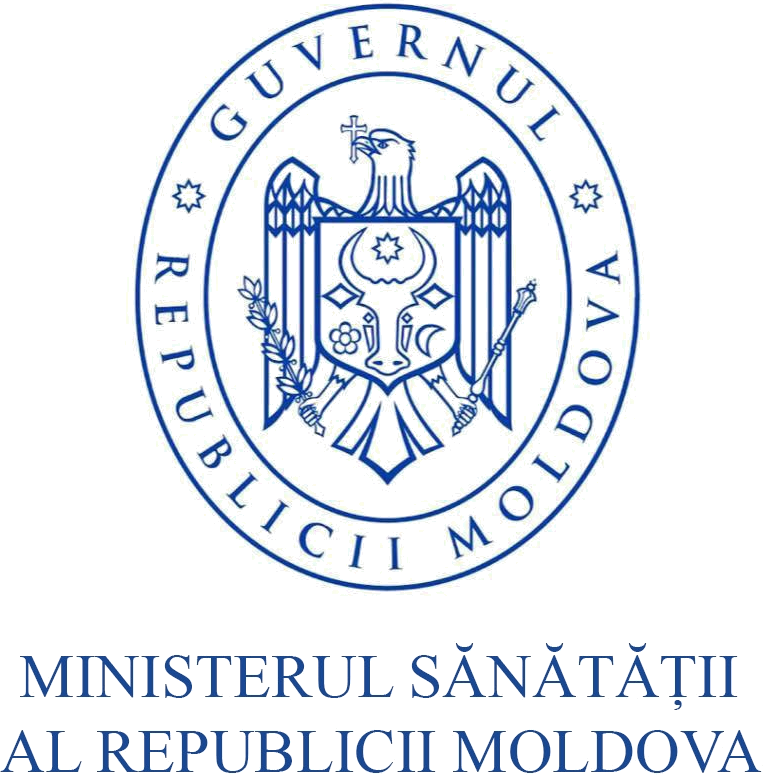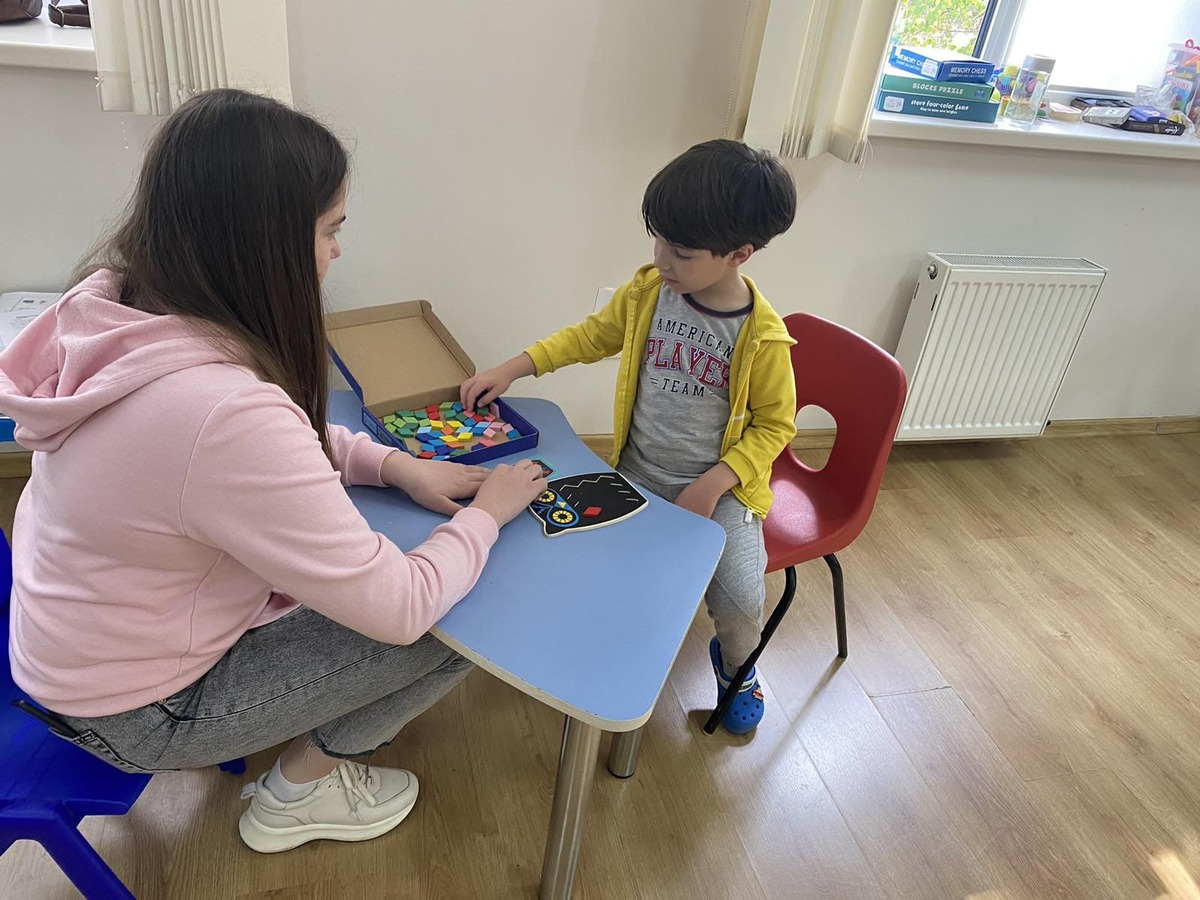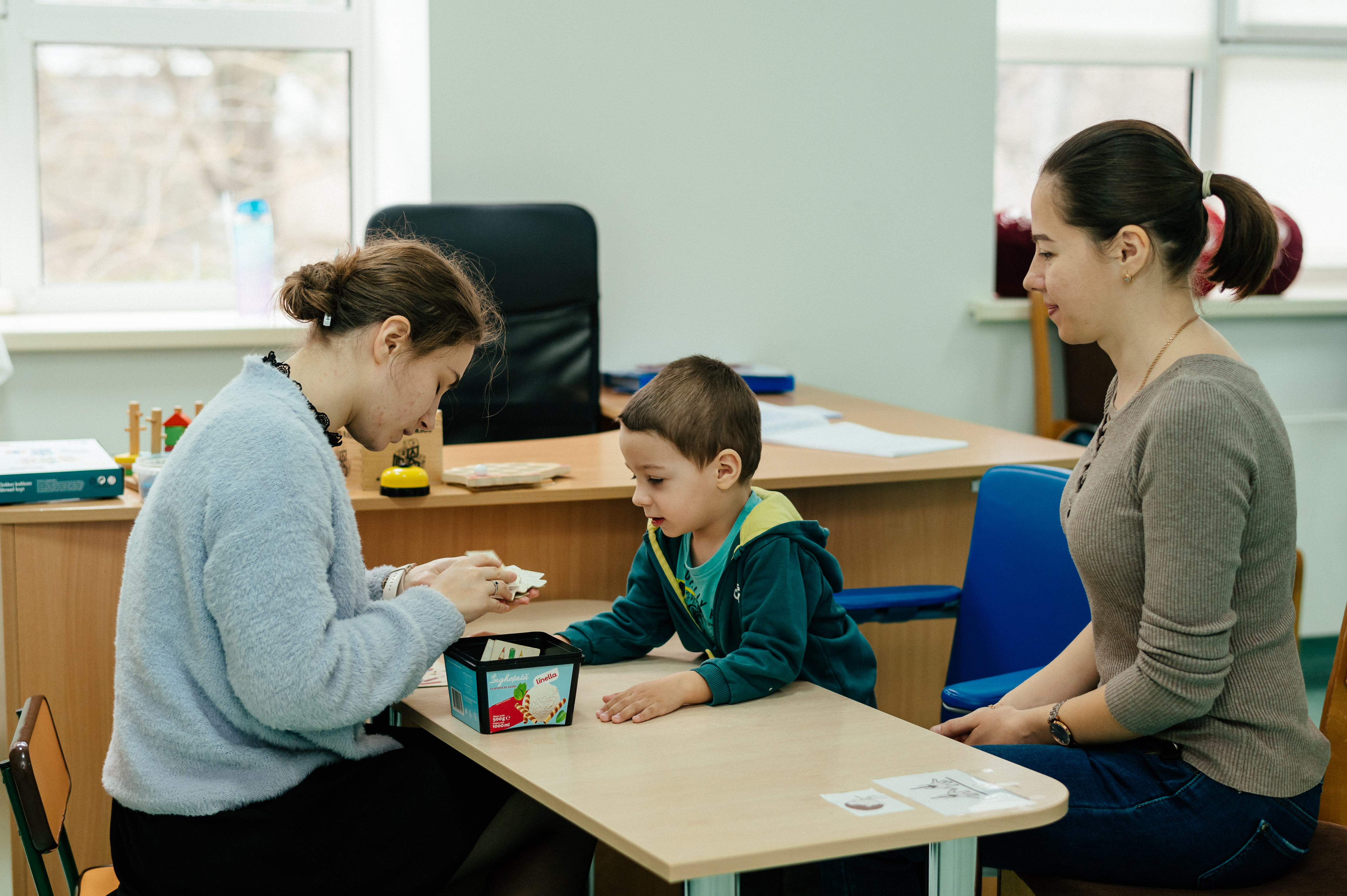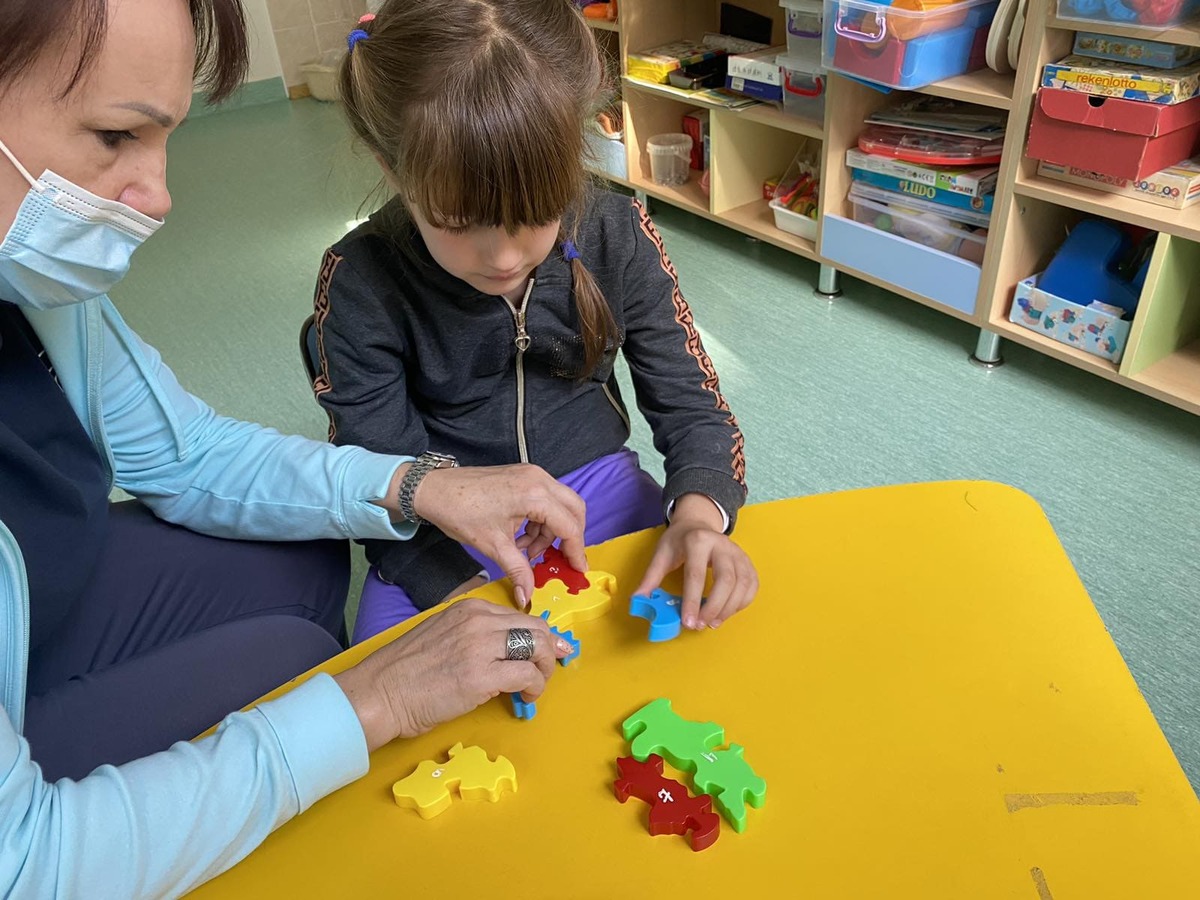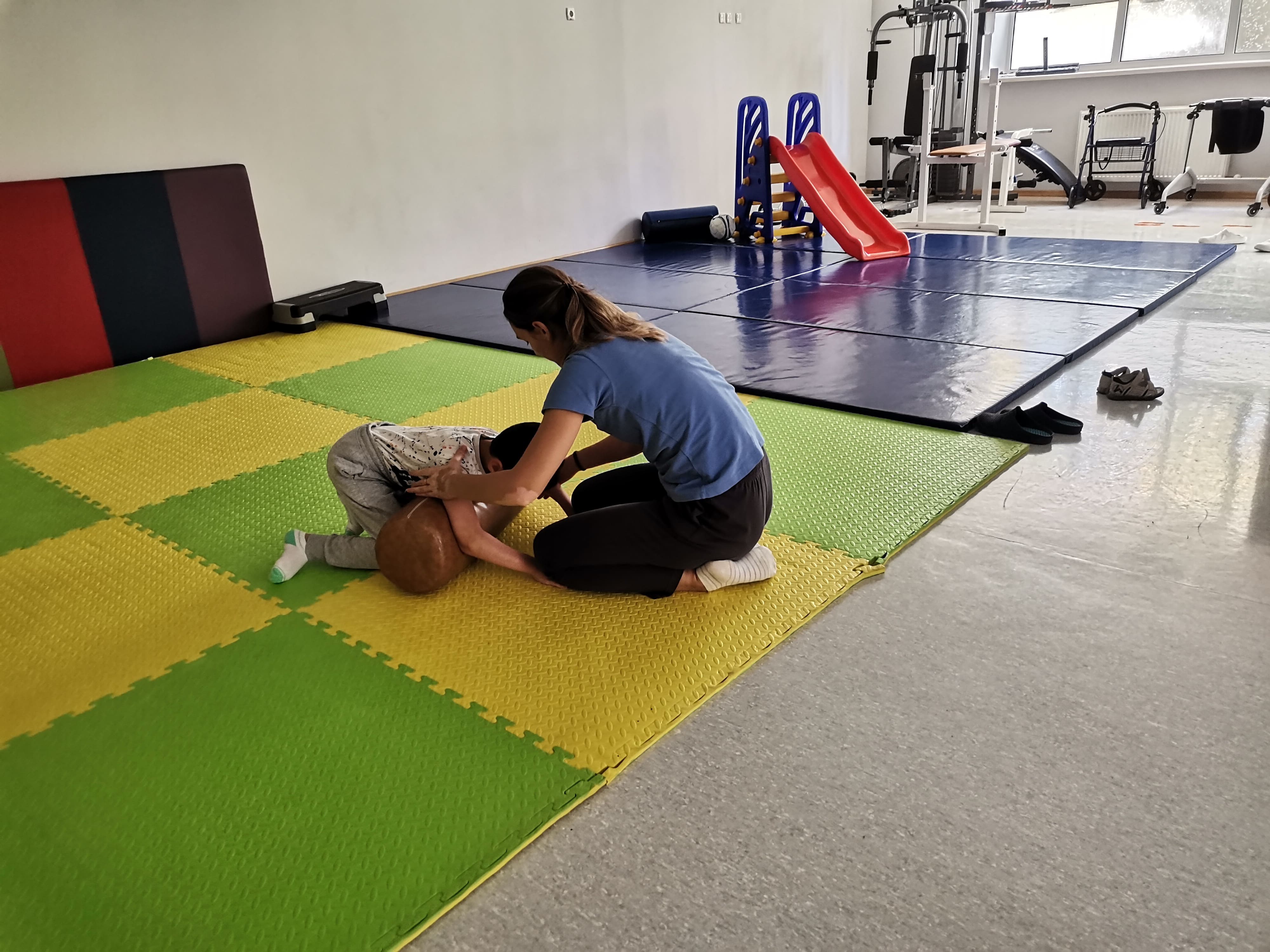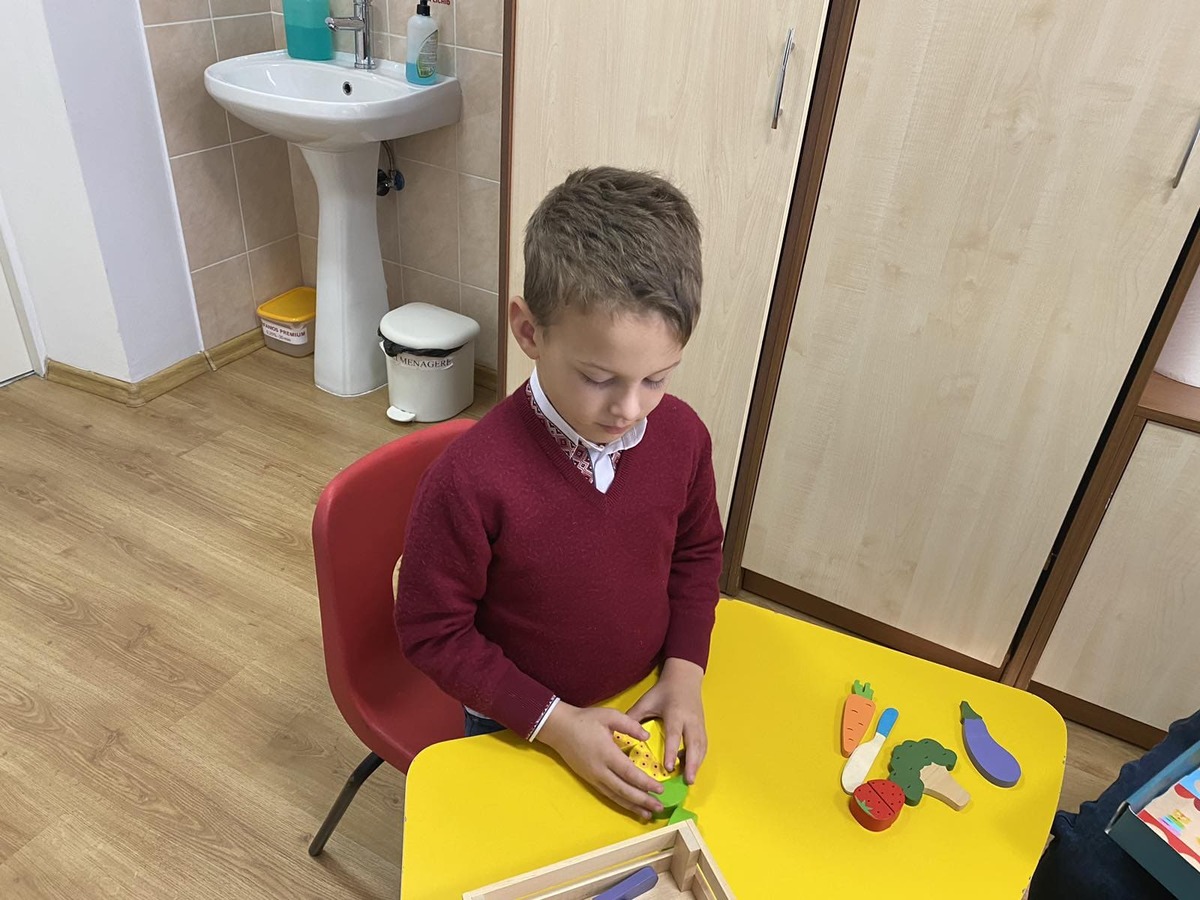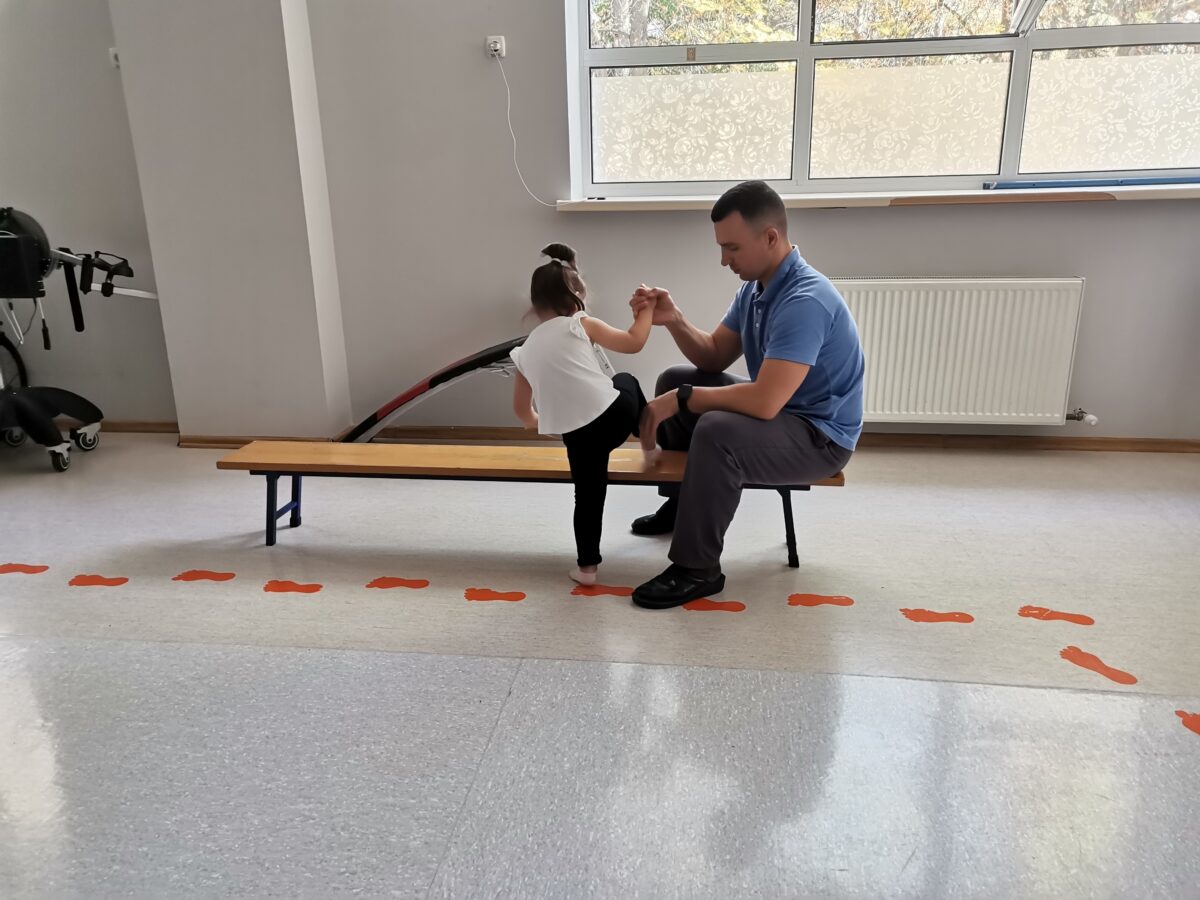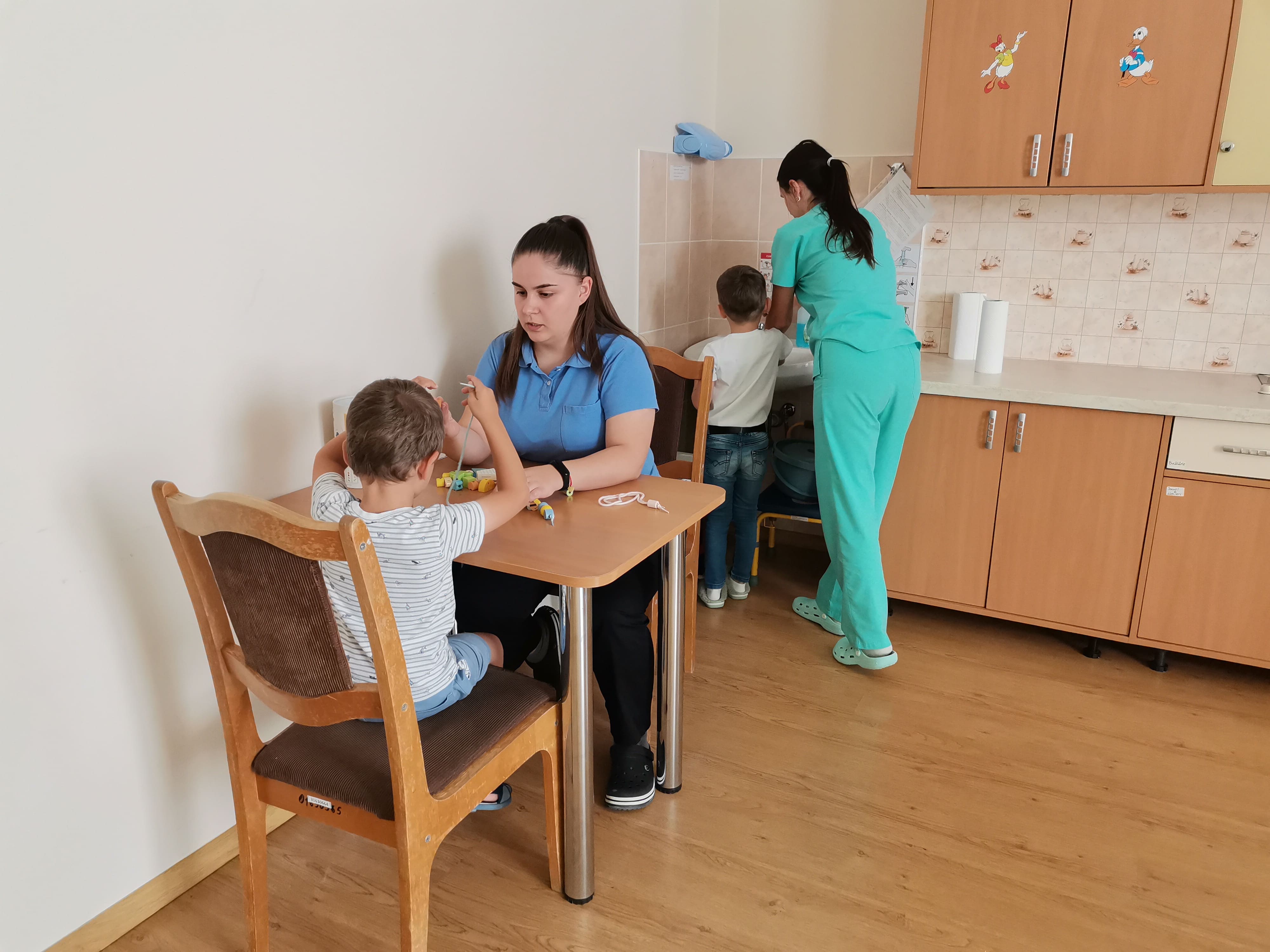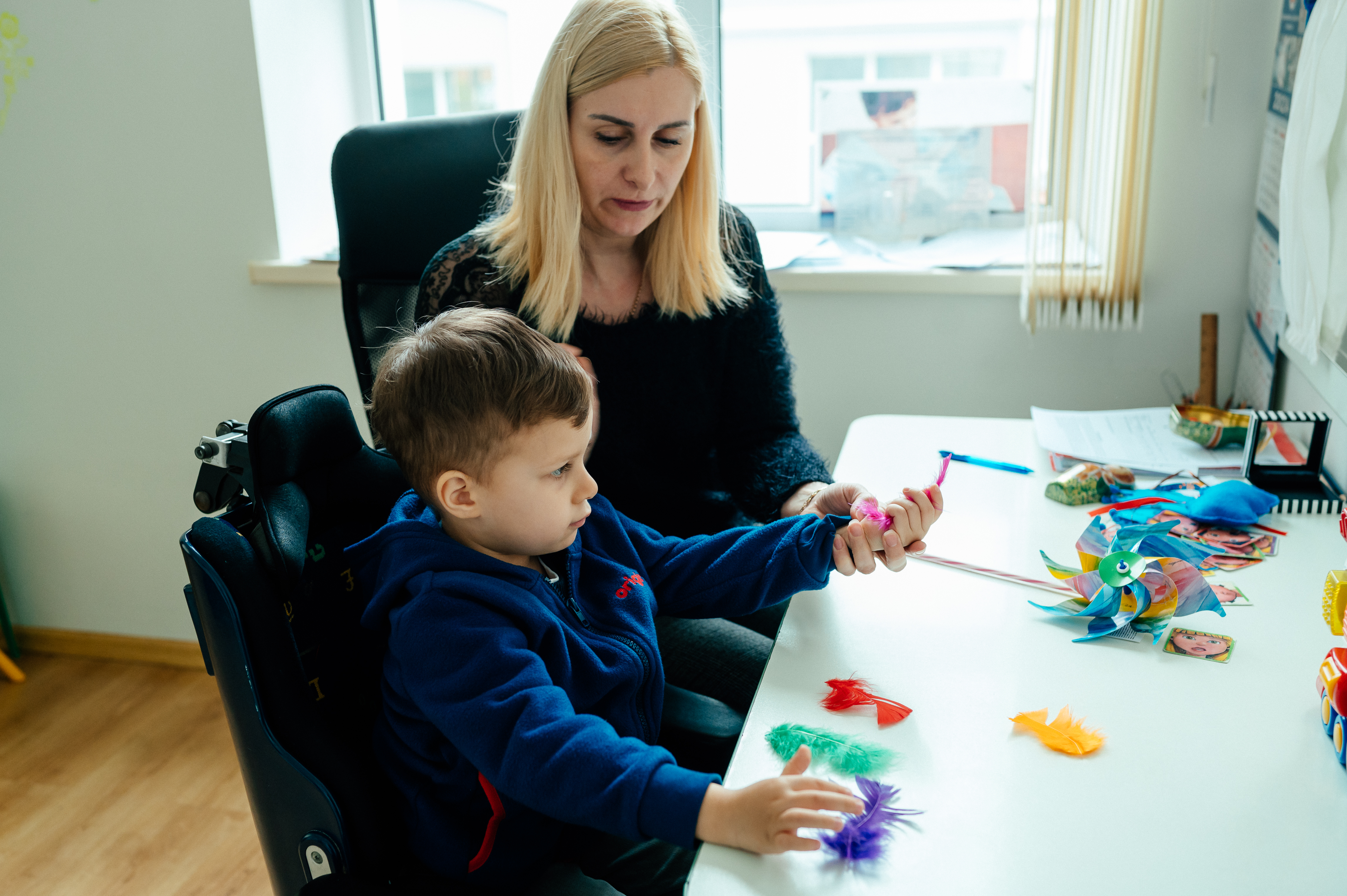Eligibility
Children aged one month to 18 years can benefit from medical and biopsychosocial rehabilitation services. For early intervention: 0-5 years and subsequent rehabilitation services up to the age of 18 years.
Admission to the Center is made according to the Referral – Extract form (Form no. 027/e) issued by the family doctor or specialist doctor, with prior appointment.
The Center will admit children with neuro-psycho-motor deficiencies for recovery treatment, according to medical indications, based on referral tickets with the following nosological forms:
• Diabetes mellitus with complications (E10-E14)
• Malnutrition (E40-E46)
• Phobias (F40), Stuttering (F98.5), Tics (F95)
• Mental retardation (F70-F79)
• Speech and school skills development disorders (F80-F81)
• Specific developmental disorder of motor function (F82)
• Mixed specific developmental disorders (F83)
• Autism and autism spectrum disorders (F84)
• Other developmental disorders (F88-F89)
• Behavioral, emotional and attention deficit disorders (F90-F94)
• Sequelae of inflammatory diseases of the central nervous system (G09)
• Spinal muscular atrophy (G12)
• Demyelinating diseases of the central nervous system (G35-G37)
• Episodic and paroxysmal disorders (G40)
• Disorders of nerves, roots and plexuses (G50-G59)
• Polyneuropathies and other disorders of the peripheral nervous system (G60-G64)
• Disorders of myoneural and muscular junctions (G71-G73)
• Cerebral palsy (G80)
• Other paralytic syndromes (G81-G83)
• Compensated hydrocephalus with motor disorders (G91)
• Other disorders of the nervous system (G90-G99)
• Sequelae of cerebrovascular diseases (I69)
• Orthopedic disorders with functional deficit (M00-M99)
• Obstetric trauma, recovery period (P10-15)
• Muscle tone disorders (P94)
• Congenital malformations of the nervous system (Q00-Q07)
• Congenital malformations (Q65-Q89)
• Chromosomal abnormalities (Q90-Q99)
• Craniocerebral trauma, recovery period (T90)
• Spinal cord trauma, recovery period (T91)
• Trauma of other genesis, recovery period (T92-T98)
• Other
Medical contraindications for rehabilitation treatment within the IMSP Children’s Rehabilitation Center:
• Contagious diseases, including during the incubation period;
• Acute and chronic diseases during the exacerbation period or in the decompensation stage;
• Acute psychoses;
• Suicide attempts;
• Drug-resistant epilepsy, with frequent seizures;
• Acute skin diseases.
Admission conditions
Scheduling for hospitalization at IMSP CRRC is one of our requirements according to the regulation, as patients are admitted to the center on an appointment basis. Our goal is to provide you with the security you need, to understand your needs and to help you feel as comfortable as possible. At the appointment, the patient’s companion will be informed that the scheduled hospitalization will be performed in the absence of symptoms of respiratory disease or other acute condition. If there are some signs of respiratory disease or other acute condition, the patient and/or caregiver will be encouraged to inform the doctor who scheduled the hospitalization/family doctor and to stay at home, under the supervision of the family doctor, who makes the decision on the conduct depending on the determined situation. In these cases, hospitalization is postponed with a subsequent appointment after recovery, by informing and coordinating with IMSP Republican Rehabilitation Center for Children.
Required documents
The patient eligible for rehabilitation therapy presents to IMSP CRRC on the scheduled date and time, with the equipment and documents necessary for hospitalization:
The referral extract (form no. 027/e), issued by the family doctor or specialist doctor, which contains detailed information from the Child Development Booklet (form no. 112/e), including: perinatal history, data from clinical, paraclinical (neurosonography, CT, MRI, radiological examination, etc., if present) and laboratory (result of summary blood, urine examination, performed in the last 10 days) examinations, to which are attached:
• Certificate on epidemiological status issued by the family doctor;
• Copy of the child’s birth certificate;
• Copy of the medical conclusion for the child with a degree of disability from childhood to the age of 18 (form No.- 080/e) – if present;
• Results of investigations, consultations, conclusions regarding the child’s health status – if present;
• Informed consent signed by one of the parents/legal guardians upon admission;
• Other documents required by the epidemiological situation in the country or by Order of the Ministry of Health or the Commission for Exceptional Situations – if necessary.
Methodical instruction for referring patients for treatment within the IMSP Republican Rehabilitation Center for Children
The Center refers children with neuromotor disorders, aged 0 months to 18 years, from all administrative territories of the Republic, for rehabilitation.
The basic principle in selecting sick children for rehabilitation treatment in the Center is the presence of resources for improvement or healing, as a result of the recovery treatment.
Referral of children for rehabilitation to the Center is carried out on a scheduled basis, according to the waiting list at the contact number: 022-737572.
The decision on referring patients to rehabilitation treatment in the Center is made by the Medical Advisory Council (MAC) of the Family Physicians Center (FPC), based on the materials presented by the family doctor and/or other specialist.
When referring each child to the Center, a referral form (Form 027/e) is completed and signed by the members of the MCC of the FPC at the patient’s place of residence.
Preschool and school-age children who are not self-sufficient are accompanied by one of the parents/guardians during treatment at the Center, to whom the family doctor may issue a sick leave for the duration of treatment, in accordance with the provisions of the normative acts in force.
The parent or guardian accompanying the child, upon admission with the child to the Center in the inpatient department, benefits from free accommodation and food.
The child development booklet (Form no. 112/e) must contain data on the patient’s referral for treatment.
The data on the registration of patients referred for treatment at the Center are entered in the Register, which includes: d/o no.; child’s last name, first name, date, month and year of birth, home address, telephone no.; basic diagnosis; degree of disability; treatment period; identity card number and signature of the parent/guardian. The respective register is kept in the institution for no less than 3 years.
Patient rights
Law No. 263-XVI of 27.10.2005. on the rights and responsibilities of the patient
free medical assistance (compulsory and voluntary) in the volume established by the legislation;
respectful and humane attitude on the part of the health service provider, regardless of age, gender, ethnicity, socioeconomic status, political and religious beliefs;
security of personal life, physical, mental and moral integrity, ensuring discretion during the provision of health services;
reduction of suffering and alleviation of pain, caused by an illness and/or medical intervention, by all available legal methods and means, determined by the existing level of medical science and the real possibilities of the health service provider;
alternative medical opinion and receipt of recommendations from other specialists, at the request of the patient or his legal representative (close relative), in the manner established by the legislation;
information on the health service provider, the profile, volume, quality and manner of providing the respective services;
examination, treatment and maintenance in conditions appropriate to sanitary and hygienic standards;
exhaustive information on one’s own health, methods of diagnosis, treatment and recovery, prophylaxis, as well as their potential risk and therapeutic efficiency;
voluntary expression of consent or refusal to medical intervention and participation in biomedical research (clinical study), in the manner established by this law and other normative acts;
to perform religious rituals during hospitalization in the medical and health institution, if this does not affect its activity and does not cause moral harm to other patients;
information on the results of examining complaints and requests, in the manner established by legislation;
Patient responsibilities
Law No. 263-XVI of 27.10.2005. on the rights and responsibilities of the patient
Respect the therapy schedule;
Respect the peace, order and do not damage the furniture in the living room, hallway, therapeutic rooms, courtyard.
During the hospitalization, do not leave the Center premises without the consent of the staff;
Attend the Center with comfortable clothing and a change of shoes;
Perform daily general or partial hygiene as appropriate, ventilation, outdoor walks;
Have and use personal hygiene items;
Rehabilitation procedures and feeding will be done in full hygiene conditions (washing hands: before and after meals, after changing diapers, underwear);
Follow medical recommendations during therapy;
Any drug treatment will be administered by the companion only with the consent of the medical staff in the neuro-rehabilitation department;
Smoking and drinking alcoholic beverages are prohibited within the premises and territory of the Center;
The use of gadgets and mobile phones is limited within the CRRC. It is allowed only for the purpose of connecting with loved ones.
The parent/guardian assumes responsibility for the safety and health of the child, outside of rehabilitation sessions during hospitalization in the CRRC;
To respect the rights and dignity of other patients, as well as medical and healthcare personnel
In case of non-compliance with the patient’s Responsibilities, the Center administration is reported and the patient may be discharged before the predetermined deadline;
Father’s School
It is the place where parents come to learn and increase awareness about how to accompany children as they grow and deal with any problems that arise. The focus is on establishing stable community structures of solidarity in which children can develop healthily. The essential reason would be to heal the trauma, fear and distrust of the parent, so that they do not transmit subconscious patterns of fear to the child.
The Mother/Father School offers spaces of trust to integrate our processes, discuss issues regarding children in the community and receive supportive feedback from others.
The main goal is to provide informational support in mastering the art of parenting and the correct guidance for solving problems.
We help parents and children gain confidence and independence, we are there for them when they need us. The personalized support we offer helps families cope and give children the chance to thrive safely.
Within IMSP CRRC, the Mother/Father School is led by pediatric rehabilitation specialists.
Meetings with parents take place 1-2 times a week for 30-40 minutes. The themes and topics addressed relate to the personal interests and needs of parents of children with disabilities, to the difficulties they encounter in everyday life, such as:
• Accepting the diagnosis;
• Coping with stress;
• Maintaining a healthy family;
• Calling on specialists for qualified help;
• Healthy eating;
• Inclusion and social education;
• Breathing and maintaining personal interests;
• Encouraging friendships between children, etc.
We provide general information in a concise, clear and interesting presentation that everyone can understand. Here, connecting with other parents of children with disabilities can make a difference. We establish healthy, harmonious and viable family connections.
Talking to people who share the same emotional experiences day in and day out makes parents feel less alone, increases feelings of community and provides the opportunity to share advice and information.
In conclusion, all parents need support, both formal and informal, to help them in their parenting, with appropriate support to have more chances to live and grow together.

